detail profile kazuko inano
Peran Yang Di Mainkan Kazuko Inano
 Professor Nishiyama after studying and interpreting...
Professor Nishiyama after studying and interpreting...Prophecies of Nostradamus 1974
Professor Nishiyama, after studying and interpreting the prophecies of Nostradamus, realizes that the end of the world is at hand. Unfortunately, nobody listens to him until it is too late. As the effects of mankind's tampering of the earth - radioactive smog clouds, hideously mutated animals, destruction of the ozone layer - rage out of control, the world leaders hurtle blindly toward the final confrontation. The film sparked controversy in Japan and was subsequently pulled out of circulation, with no official video release of the uncut film.
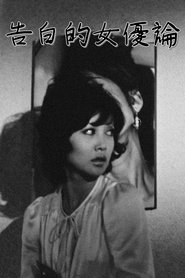 In this intricately layered Japanese film...
In this intricately layered Japanese film...Confessions Among Actresses 1971
In this intricately layered Japanese film, the nature of actresses and what they gain from acting is explored. The lives of three actresses are laid bare, and scenes from their lives are woven in and out of interviews with each of them. Each of them has experienced a traumatic event which contributes to their particular enjoyment of becoming someone else in dramatic roles.
 About 1786 the doings of a demented...
About 1786 the doings of a demented...The Curse of the Ghost 1969
About 1786 the doings of a demented lord results in many masterless samurai, including Iyemon (Kei Sato) who is used to luxury and cannot adjust to the hand-to-mouth conditions & piecework of umbrella making. Having hired ruffians to make him look like a superior swordsman, he arranges for himself the opportunity of a profitable marriage. He hires the half-blind masseur Takuetsu (Sawamura Sounosuke) to seduce or rape his wife (Kyoko Mikage), so that she can be divorced or killed for adultery. But the masseur takes pity & informs Oiwa of her husband's horrid plot. Assisted by the merchant's daughter he intends to marry, Iyemon disfigures his wife attempting to poison her so he can marry higher. There's a lovingly gruesome sequence as she combs blad patches into her hair, kneeling deformed at her mirror, weeping with bitterness. She eventually cuts her own throat, swearing revenge.
 A bunch of young angry and...
A bunch of young angry and...Yakuza Hooligans 1966
A bunch of young, angry and penniless misfits are full of great vitality. They aren’t quite up to joining the yakuza and execute a variety of petty scams. After being approached by a yakuza and asked to become a spy for them, they are now planning to take 10 million yen from the yakuza.
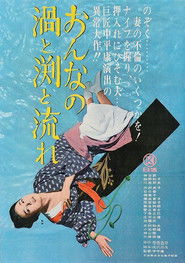 During the war a university professor...
During the war a university professor...Whirlpool of Flesh 1964
During the war a university professor meets a girl and marries her. Very soon however, it is apparent that their needs are not matched. He would much rather be translating Shakespeare than attending to her, and she has a secret in her past - one that results in her sleeping with a great number of men.
 One evening at the Marine Tower...
One evening at the Marine Tower...Flora on the Sand 1964
One evening, at the Marine Tower observatory, cosmetics salesman Ichiro Iki is drawn into conversation with an unfamiliar young lady Akiko. She invites Ichiro back to a hotel where they make love but part without even exchanging names. A week later, they have a second chance encounter at the observatory. This time, Ichiro is the one who pursues her. Back at the hotel, Akiko begs Ichiro to give her sister – Kyoko, a bar hostess – absolute hell. Akiko resents her sister for lecturing on chastity, while wantonly indulging in promiscuous activity. Ichiro takes an interest in Kyoko and sets out towards her bar…
 Leaving his wife in Osaka Honda...
Leaving his wife in Osaka Honda...The Hunter's Diary 1964
Leaving his wife in Osaka, Honda leads a double life in Tokyo – after spending the day as an elite businessman, he flirts around in the evenings. He even rents a secret apartment where he keeps record of his girl hunts in his diary, the ‘Hunter’s Diary’. One day, he finds an article in the newspaper – a murder of a young woman in his diary. A few days later, another woman from his diary is murdered. He soon finds himself in a labyrinth of fear, as women named in his diary are killed one after another...
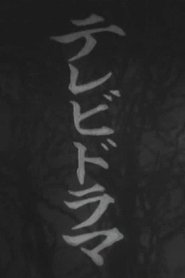 Youth After School takes Tokyo and...
Youth After School takes Tokyo and...Youth After School 1963
"Youth After School" takes Tokyo and Kyoto as the stage, and tells the story of a family that develops around the daughter's marriage. The play was broadcast on NHK TV in 1963, but the program recording technology was not mature at that time, and relevant people called it "phantom TV drama (幻のドラマ)". However, this TV series that was originally thought to be lost has been rediscovered after 50 years.
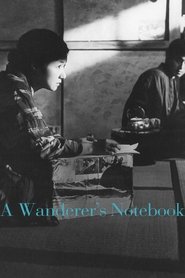 Considered one of the finest late...
Considered one of the finest late...A Wanderer's Notebook 1962
Considered one of the finest late Naruses and a model of film biography, A Wanderer’s Notebook features remarkable performances by Hideko Takamine – Phillip Lopate calls it “probably her greatest performance” – and Kinuyo Tanaka as mother and daughter living from hand to mouth in Twenties Tokyo. Based on the life and career of Fumiko Hayashi, the novelist whose work Naruse adapted to the screen several times, A Wanderer’s Notebook traces her bitter struggle for literary recognition in the first half of the twentieth century – her affairs with feckless men, the jobs she took to survive (peddler, waitress, bar maid), and her arduous, often humiliating attempts to get published in a male-dominated culture.
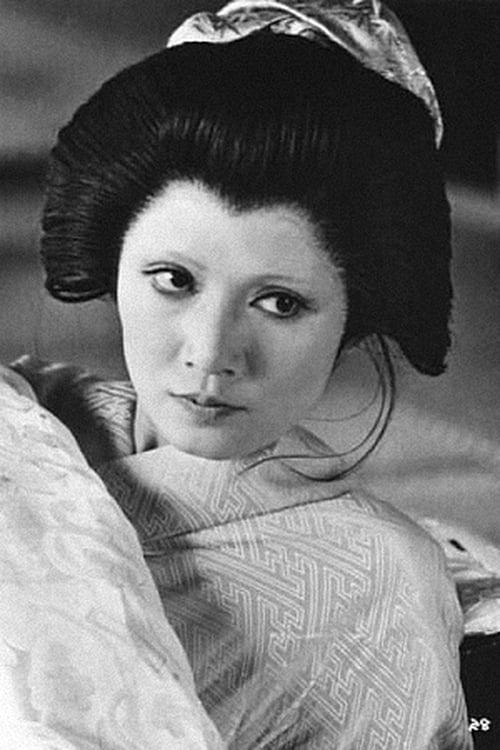
 Hell manifests itself through the sins...
Hell manifests itself through the sins... Oshima a rich girl married Shinzo...
Oshima a rich girl married Shinzo...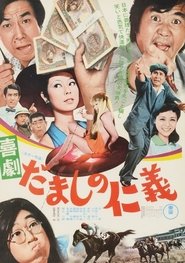 Exconman Junpei plots revenge on a...
Exconman Junpei plots revenge on a...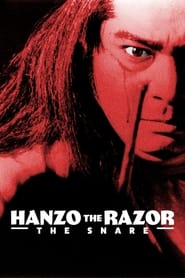 Against the backdrop of the Edo...
Against the backdrop of the Edo...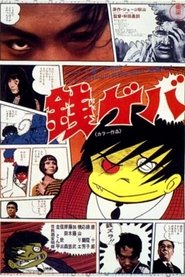 Based on the comic by George...
Based on the comic by George... Two interwoven stories The first is...
Two interwoven stories The first is...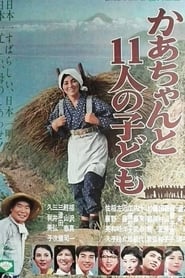 The story of a selfless mother...
The story of a selfless mother...